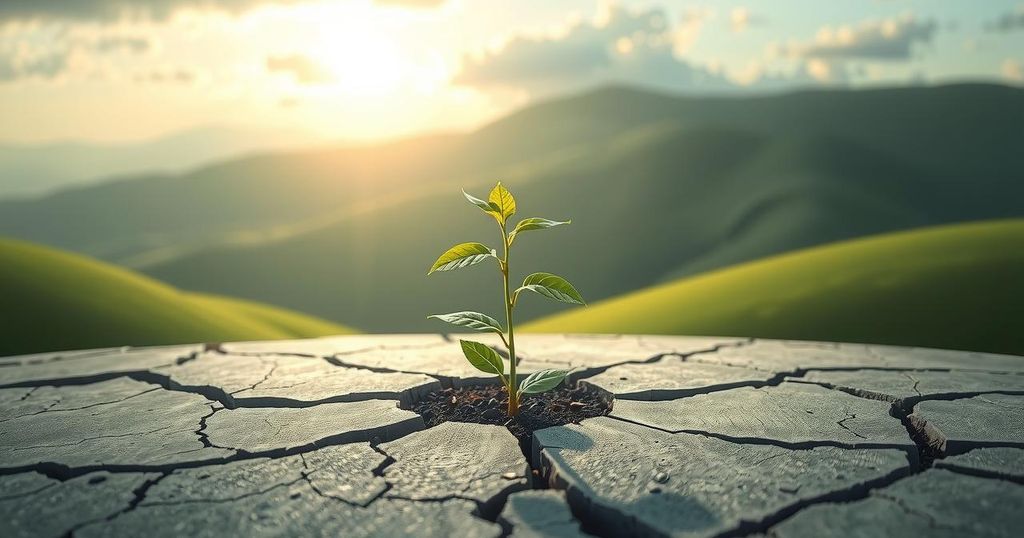The article discusses the implications of the U.S. withdrawal from the Paris Agreement on global climate action, emphasizing the need for the Global South, particularly South Africa, to take leadership in climate initiatives. Sir David King highlights the urgency of addressing climate change through strategic emissions reduction and equity in response. South Africa’s potential to lead in renewable energy is noted, stressing the importance of a just transition from coal to cleaner energy sources.
The recent withdrawal of the United States from the Paris Agreement raises concerns about global climate action. Imraan Valodia, pro vice-chancellor at the University of the Witwatersrand, engaged with Professor Sir David King of the Climate Crisis Advisory Group to discuss climate challenges and the role of the Global South. Sir David’s experiences in South Africa and his scientific background inform his views on this critical issue.
Sir David King emphasizes that climate change constitutes an unprecedented crisis with dire implications, including extreme weather and sea-level rise. Current warming has surpassed 1.5°C, leading to potentially devastating consequences for coastal cities, agriculture, and human migration. He advocates for proactive strategies focusing on emissions reduction, greenhouse gas removal, ecosystem repair, and resilience building to mitigate these impacts.
Despite the setback posed by the U.S. withdrawal, Sir David argues that the Global South should leverage this moment to strengthen its leadership on climate issues. Nations such as South Africa and Brazil have the opportunity to establish a proactive climate alliance that prioritizes sustainability and social equity. He stresses that while historically, the Global North has been a significant contributor to emissions, responsibility now lies with them to support the Global South through both guidance and resources.
The need for a new cooperative model that emphasizes collective solutions is critical to addressing climate justice. Sir David highlights that investing in resilience particularly in vulnerable Global South countries is essential not only for improving current living conditions but also for fostering trust between nations necessary for cooperative climate action.
South Africa can emerge as a leader in renewable energy through decisive action and strong governance. The country’s reliance on coal poses risks in a shifting global energy landscape towards cleaner alternatives. By harnessing its ample solar and wind resources, South Africa can transition to renewable energy, benefiting economically while setting an example for others.
A just and equitable phase-out of coal is crucial for South Africa’s workforce and communities. Ensuring that retraining and reskilling programs are implemented will help workers transition to jobs in the renewable sector, thereby maintaining economic stability. Looking at the UK’s example of a managed coal phase-out can guide similar efforts in South Africa, ensuring that clean energy projects create jobs and support skill development articulately.
Ultimately, South Africa must act promptly to transition from coal to clean energy. Delaying will only exacerbate challenges in the long run, risking greater economic pain. With the future of energy leaning towards cleaner and more affordable sources, South Africa should position itself at the forefront of this essential shift.
The conversations surrounding climate change underline the urgency for both the Global South and the Global North to collaborate effectively. As climate impacts intensify, countries in the Global South, particularly South Africa, are challenged to take leadership in climate action and renewable energy. A coordinated effort that emphasizes equity and justice will not only benefit these nations but also contribute meaningfully to global sustainability efforts. Furthermore, the transition from coal must prioritize social considerations to ensure an inclusive and resilient future.
Original Source: theconversation.com






